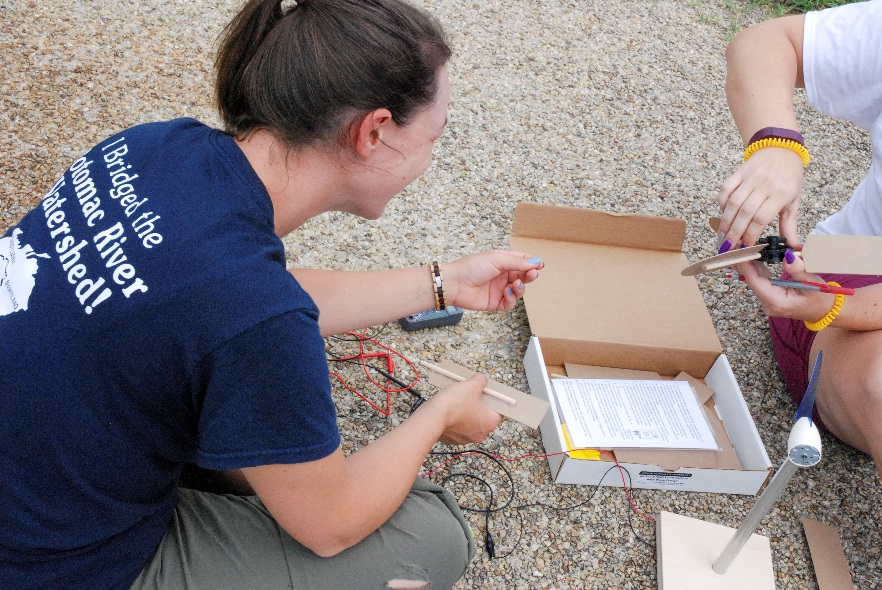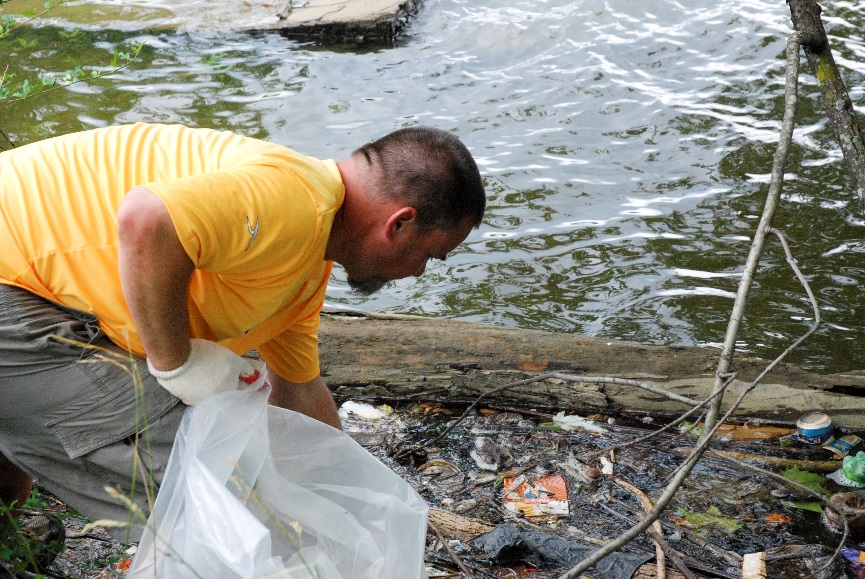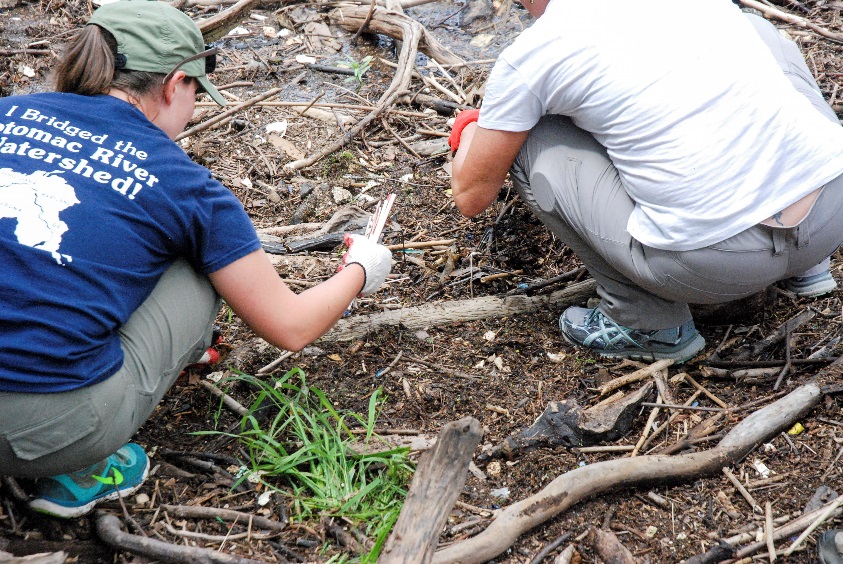By: Christina Morgal, Communications Intern
Did you know that every year we help local teachers bring the wonder of the outdoors into their classrooms? Our summer workshops bring teachers out to their local parks to prepare for and experience the Bridging The Watershed activities their students will do in the upcoming school year. After taking this summer training, teachers are confident and ready to dive into the hands-on science learning activities with their classes, both inside and outside the classroom.
Recently, I shadowed a group of teachers from Charles County Public Schools as they explored renewable energy, litter prevention, and sustainability activities with our Bridging The Watershed educators.

As we learned about pollution in local waterways, I overheard these four awesome quotes:
“Small changes lead to bigger changes.”
Sustainability will not be achieved in a day. But, if everyone makes one change in their own lives, then we would all make a big stride to save our waterways!
Program educators highlighted the ways we help each class do an action plan or project they can implement in their own lives or schools based on what they learn during their experience with us. These actions often include small changes students can make in their daily lives, such as getting a recycling bin for their home or asking their parents to use reusable shopping bags. An action plan can also include writing a letter to their principal about how they could be a “greener” school.
Small changes like these definitely add up.
“You’re not the one that caused it, but you can be the one to change it.”
The environment is not picky about who helps protect it! Although you may not have been the person to throw trash in the river, you can choose to join the fight against pollution and take action by volunteering for cleanups, educating others about sustainability, or implementing changes in your workplace, school, or home.

“We don’t see what we don’t look for.”
Have you ever looked at a plastic straw and thought about it might end up once you throw it away? Turns out, plastic straws can’t be recycled or composted, so they often end up in landfills, waterways, and communities…and are one of the top ten items found during cleanups!
During the day’s pollution cleanup activity, we collected more than thirteen bags of trash from the Potomac River shoreline in just 45 minutes, which included more than 250 plastic straws. Once you see how these everyday items end up as litter, it’s hard to walk anywhere without spotting that discarded plastic straw, bottle cap, food container, or empty bottle.

“Buy green and reduce, reuse, and recycle.”
This old adage still rings true! The three R’s mantra continues to be one of the easiest sustainability practices to implement, with three small changes that anyone can make in their daily lives:
- Reduce the amount of waste that we produce
- Reuse items in creative ways
- Recycle items that can be harmful to our environment
After spending just one day with this great group of teachers, I know that the lessons they’ve learned today will go back with them to the classroom and help inspire the next generation of environmental champions. Here’s to these four overheard and unassuming ideas can help change the world for the better.
